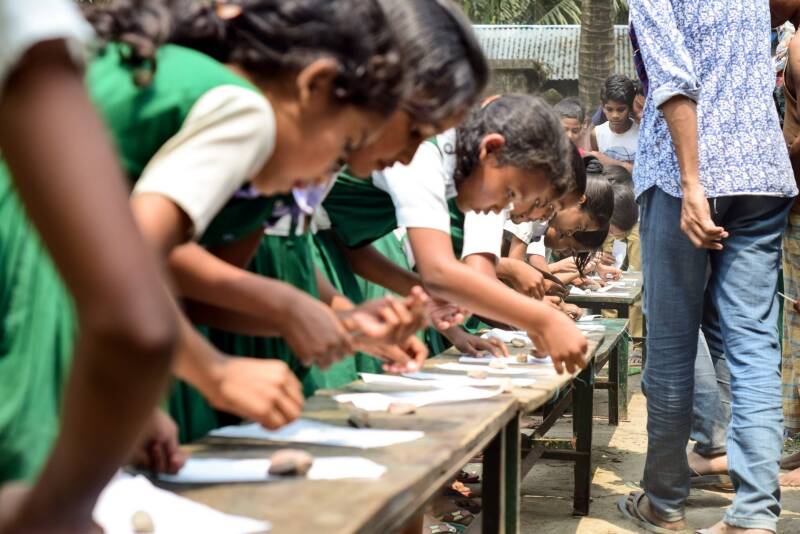The work of Dr Zaki Wahhaj, Reader in Economics, is influencing practices and legal protection against early marriage. Written by Sunder Mahendra.
During a period of intense debate in Bangladesh among policy makers and other stakeholders about effective strategies to tackle the practice of child marriages in Bangladesh, Dr. Zaki Wahhaj, Reader in Economics at the University of Kent, conducted a research on the consequences of female early marriage, in collaboration with international research partners. The research was conducted within the context of the Government of Bangladesh’s proposal to decriminalise early marriage in special circumstances with the view that it would make the practice more socially acceptable.
The primary approaches adopted by Dr. Wahhaj and partners in conducting this research included a large-scale nationally representative survey of women in Bangladesh with detailed history on their marriages which was then followed up with a field experiment in 80 villages in Bangladesh to understand the effects of a recent change in child marriage law on social attitudes towards the practice and marriage timing decisions.
Dr. Wahhaj presented his findings through talks and lectures at various fora including, at Gulbenkian theatre at the University of Kent, at Innovation for Poverty Actions’s RECOVR Roundtable Series. He presented his research findings at the University of Berkeley recently.
Dr. Wahhaj’s public engagement during his research, was through working in partnership with civil society organisations that had the dual effect of informing his research as well as influencing the practices within these organisations. Since 2018, Dr.Wahhaj has collaborated with MOMODa Foundation, a non-profit organisation that operates a range of social development programmes in northern Bangladesh, and Dr Abu Parves Shonchoy from Florida International University, to design an intervention aimed at reducing female early marriage in the region. The intervention, informed by the research on early marriage in Bangladesh will involve verifying and creating official birth records of adolescent girls to provide them with better legal protection against early marriage.
| The research provided detailed, up-to-date information on female marriage patterns, education, fertility, and employment and helped shape the understanding, approach and programmes of non-profit organisations working in the country on issues related to early marriage. |
| The findings from these studies helped inform the Population Council – an organisation that designs and evaluates programmes on important health and development issues around the world – in its own approach to tackling female early marriage in South Asia. |
| The work has also been crucial in improving understanding at BLAST – the largest dedicated non-governmental legal services organization in Bangladesh – on how the law affects social attitudes and practices related to female early marriage. |
| The survey data enabled Wahhaj, and his associates, to produce rigorous new evidence on the social effects of early marriage on individuals who marry at a young age. |

